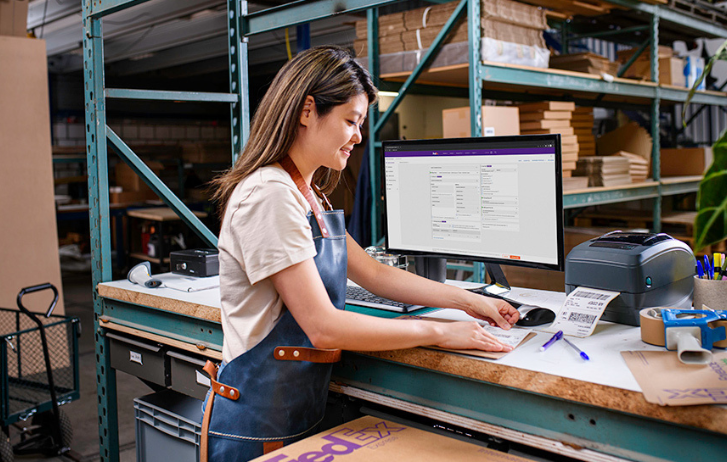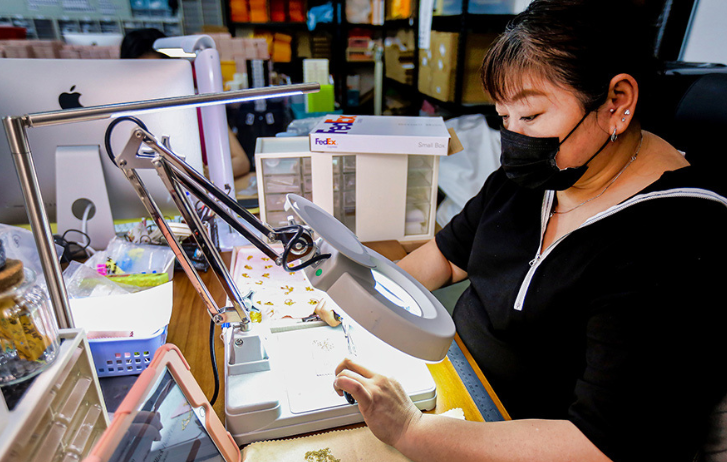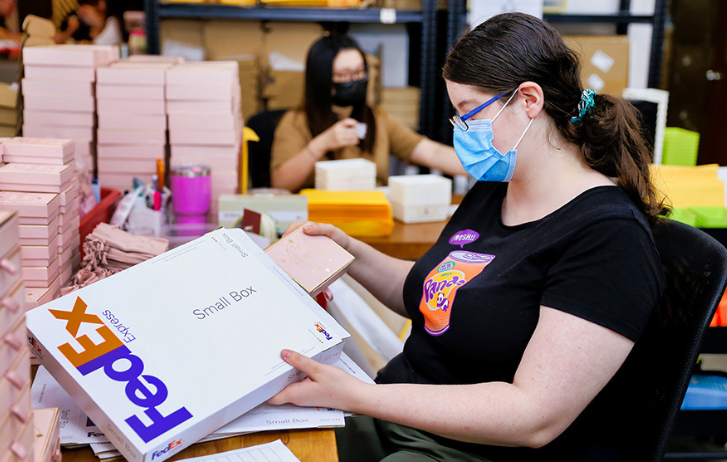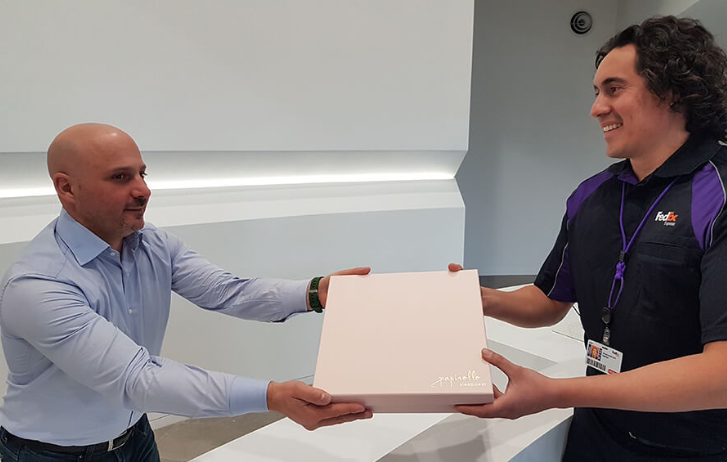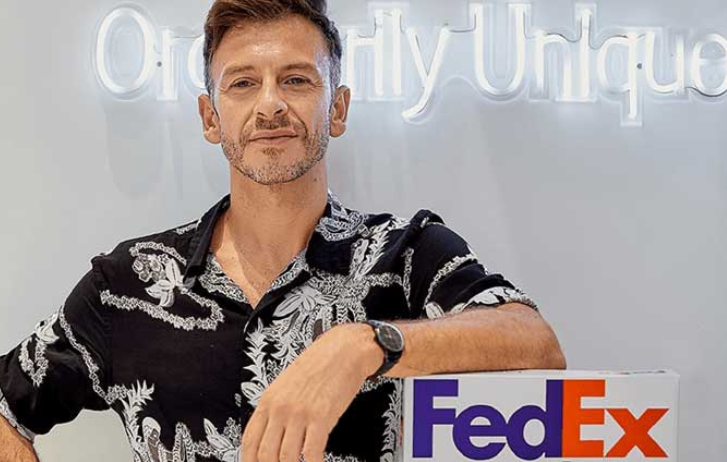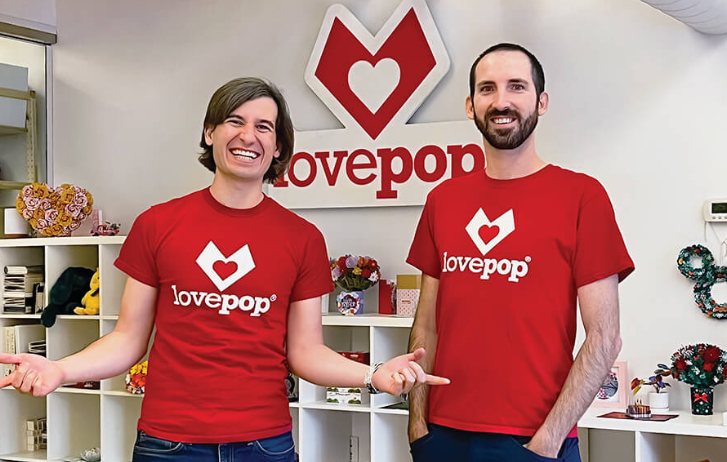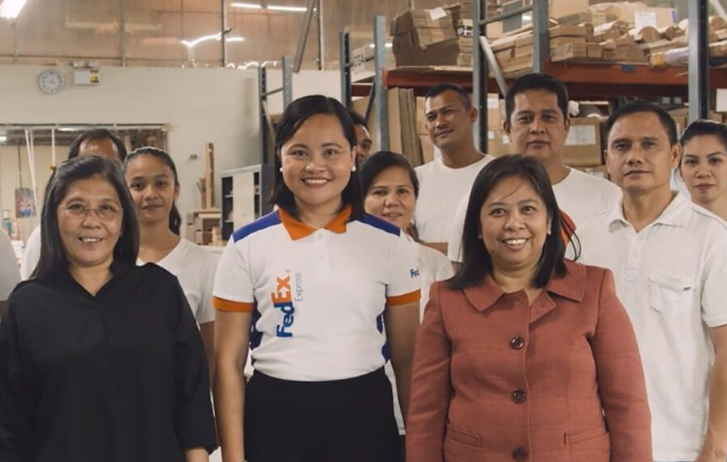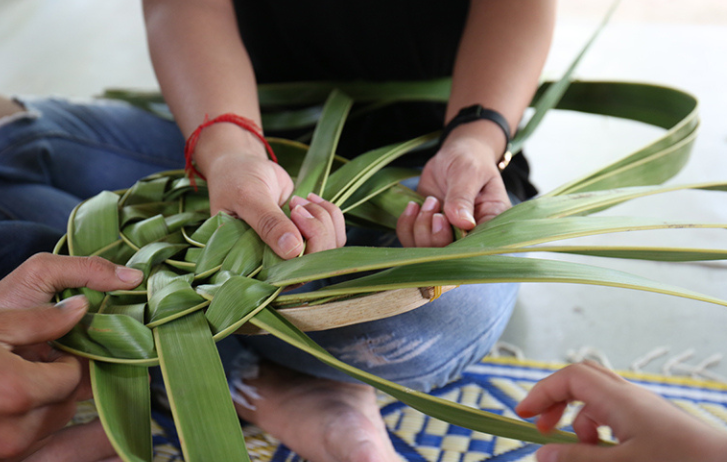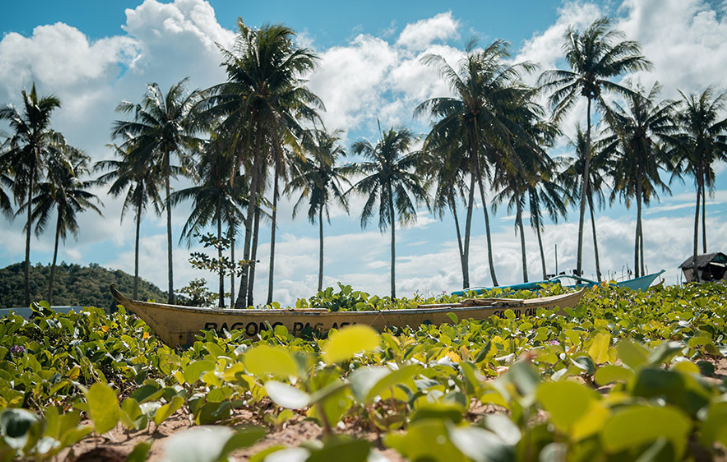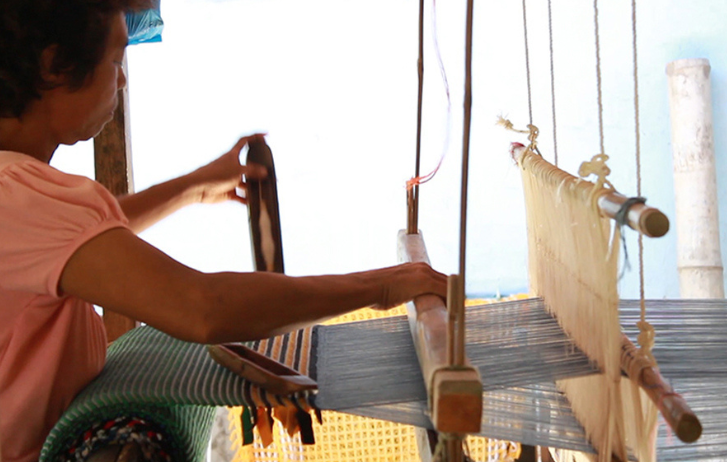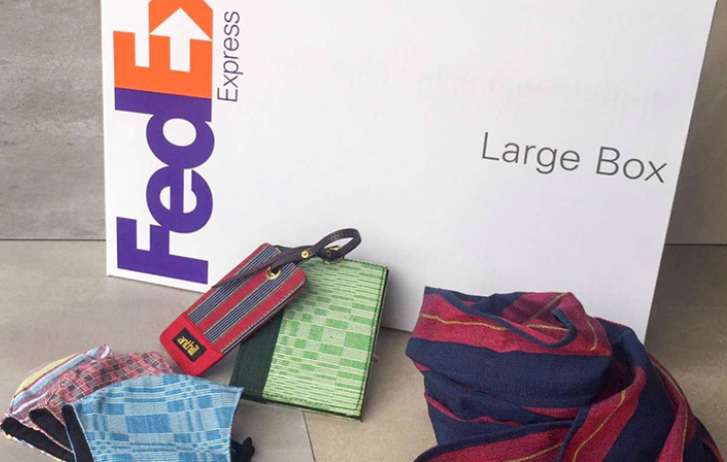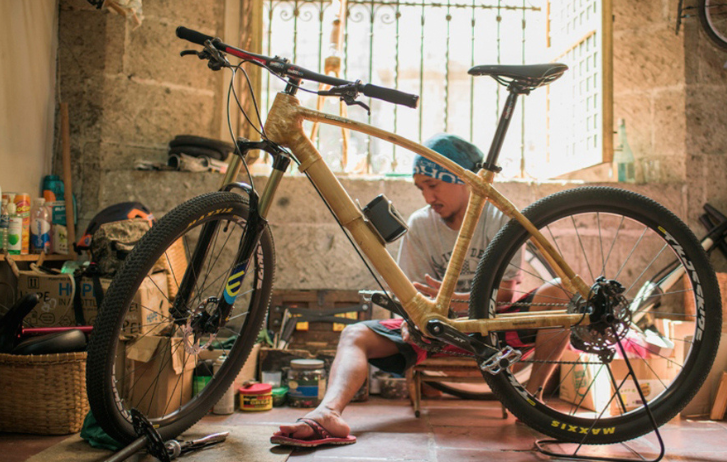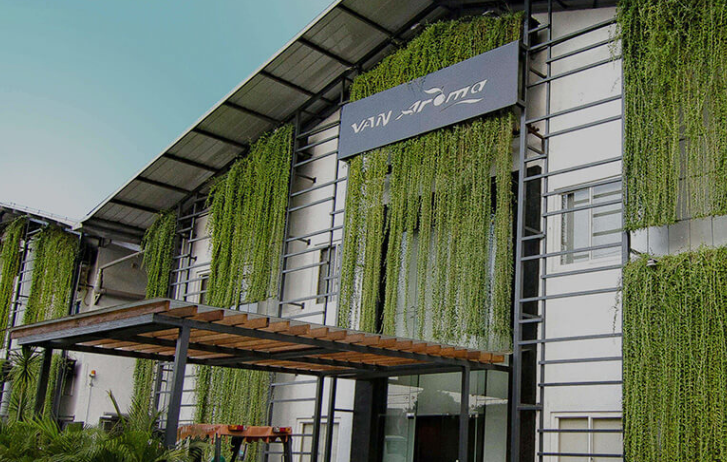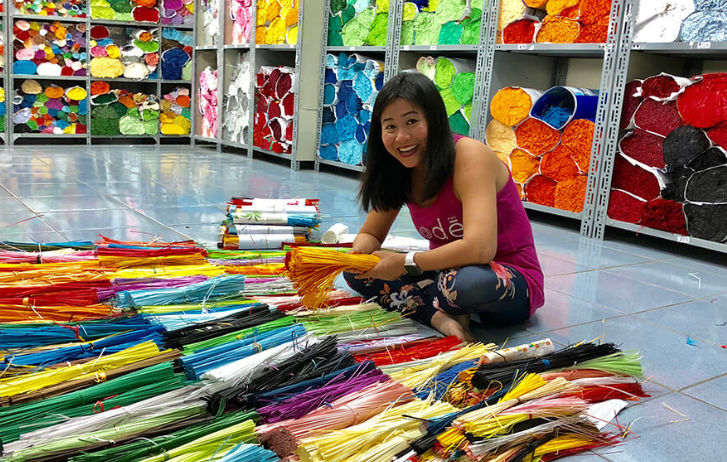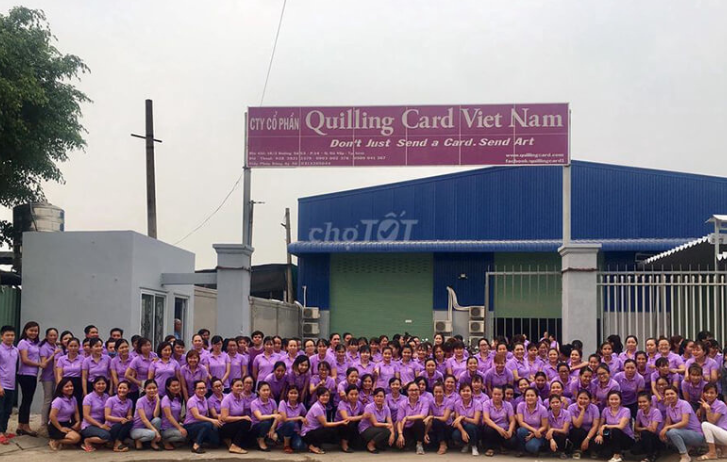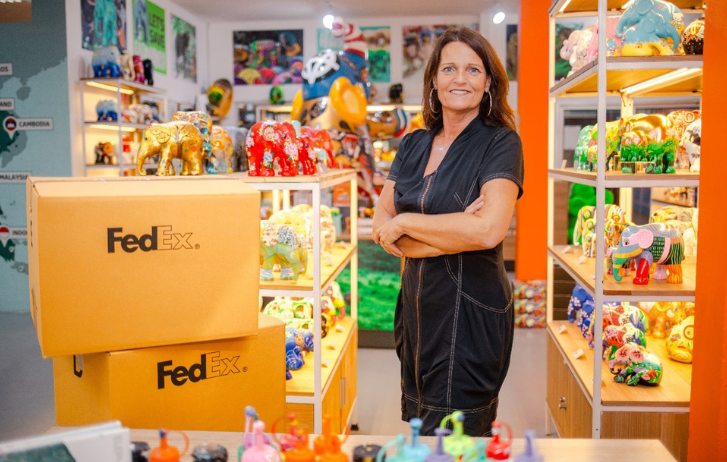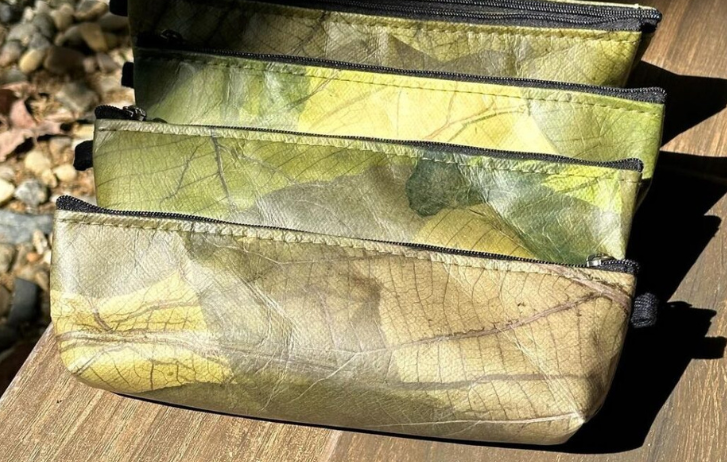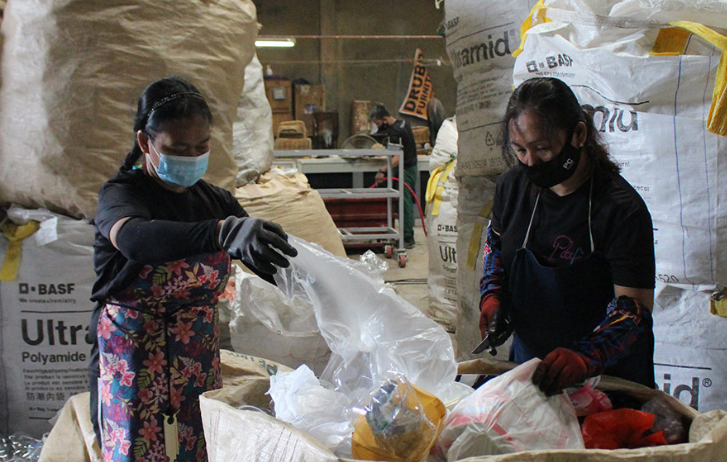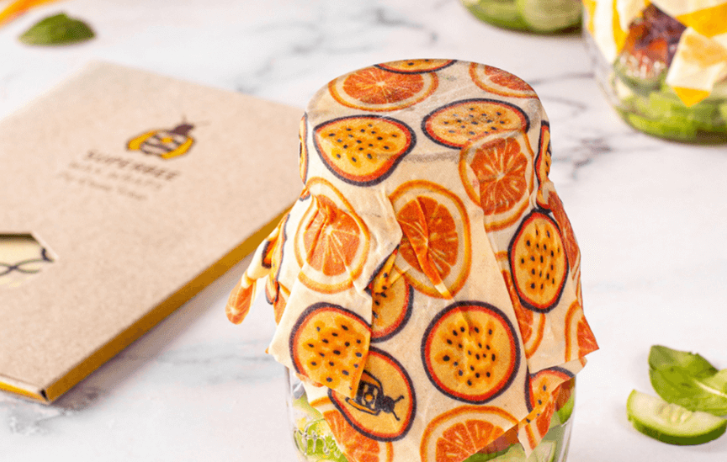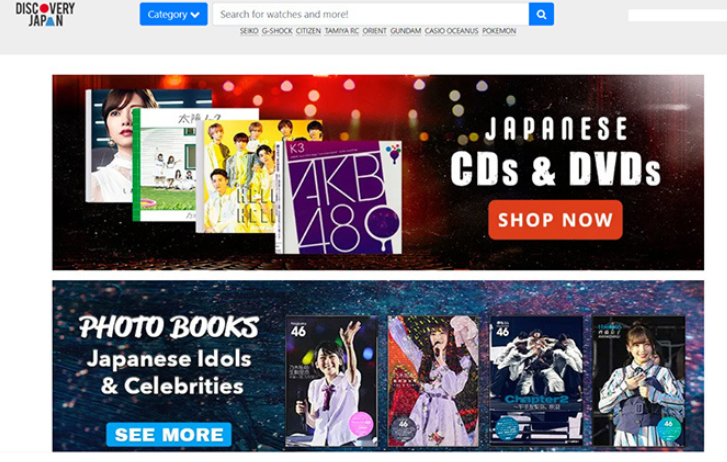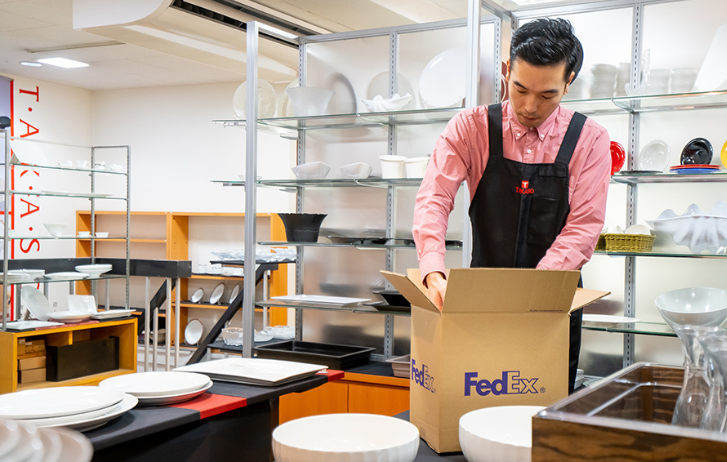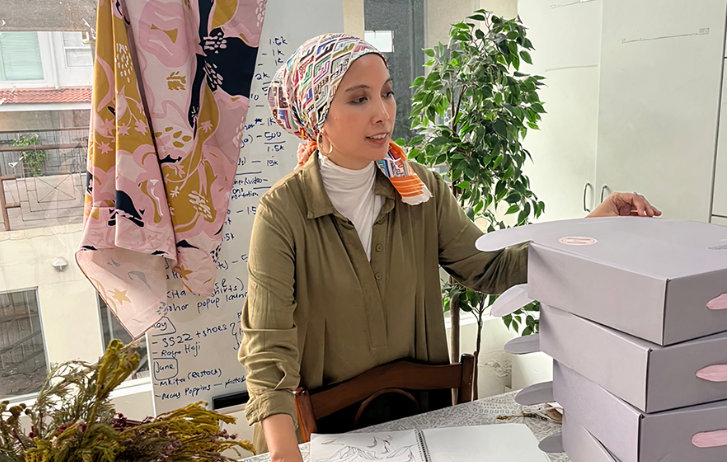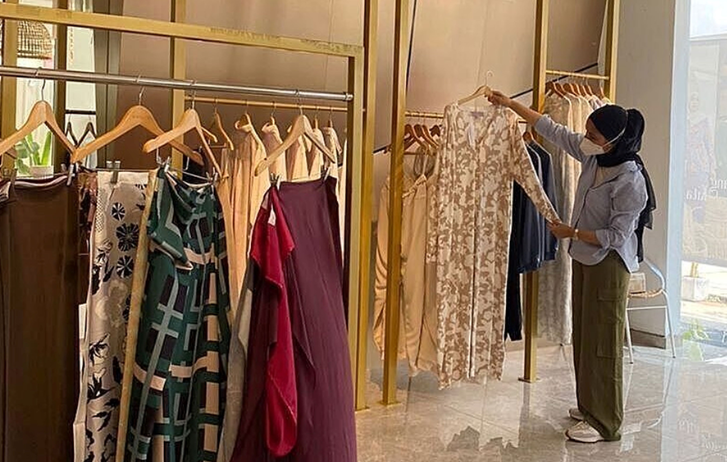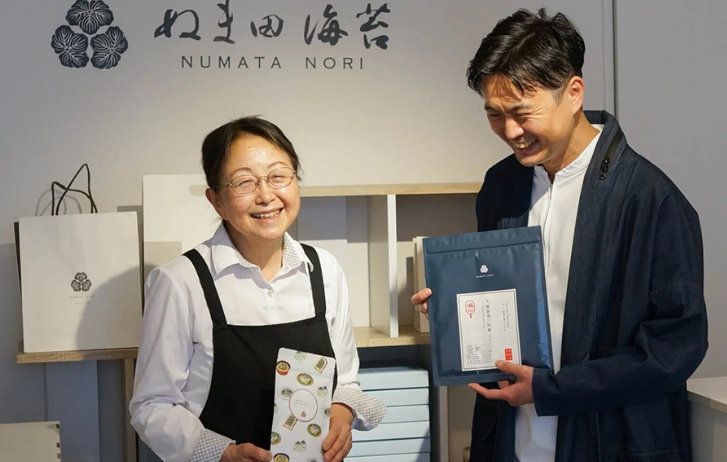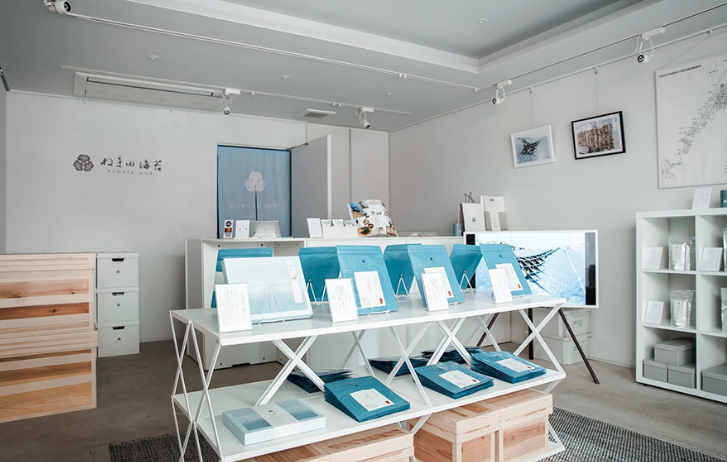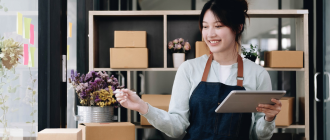
How To Give Your Small Business A Boost: Tips From Asia’s Experts
By FedEx | First published: April 1, 2021 Updated: May 7, 2025
From artisan craftmakers to tech platform start-ups, we asked small businesses in Asia for tips on bringing your products to new global audiences and expanding your business through e-commerce.
- To succeed in the Asia-Pacific region, SMEs need a well-defined business strategy and robust growth plans.
- APAC is an incubator for successful start-ups of all kinds, and many of the businesses we work with at FedEx have expanded to markets all over the world.
- From e-commerce moguls to tech entrepreneurs, we explore some common ingredients for regional success.
Whether you’re selling bicycles or beeswax wraps, the diversity and scale of small businesses in Asia is immense. This monumental scope, combined with the rapid growth of mega-markets like India and China, has made the region one of the most successful SME launchpads in the world.
What makes the region so exciting? In the retail space, Asia’s rich diversity of culture is reflected in its product offerings, from artisan textiles to bountiful agricultural wares.
And the possibilities continue to multiply. Growth projections for start-ups and SMEs are rising, driven by super-accelerated digitalization, which helps SMEs leapfrog into new markets.
Successful businesses understand the importance of an omnichannel presence and the adoption of tech and digital solutions to reach global audiences.
Opportunities for global, Asia-Europe and intra-Asia trade are expanding fast. Free trade agreements are also giving Asian businesses a stronger foothold for global expansion. After building a strong domestic following, Asia Pacific entrepreneurs are targeting new customers overseas.
FedEx has supported small and medium businesses in Asia Pacific for decades, helping them transform from domestic enterprises into serious international players. We’ve watched innovation unfold all around us and are proud to have been part of so many success stories.
Many SMEs we work with are experts in navigating regional growth and recovery cycles as global economies shift. Their experiences offer tips for new business owners of all sizes.
Read on for seven tips on how to launch a small business in APAC.
Lesson 1: Believe in your product
Identifying gaps in the market and anticipating future customer needs are crucial for SME success. South Korean cleaning business Miso had a smart vision for launching a new product that seamlessly connects online-to-offline (O2O) services for customers.
Founded in August 2015, Miso matches customers with accessible home cleaning and lifestyle services.
Founder Victor Ching noticed that South Korea’s home cleaning market wasn’t meeting modern customer needs. Quality of service providers varied drastically. Existing vendors set a minimum service time of four hours, which didn’t suit people with small apartments or one-off requirements.
Victor knew that a hotel-like home cleaning service at an affordable price would appeal to a wide range of customers. Understanding the importance of a digital-first business model, he built a data-driven platform to connect customers with providers at lower prices than existing competitors.
The company’s tech platform also benefits cleaners, who can filter jobs based on location and wage.
Thanks to Victor’s unwavering belief in the strength of his offering, Miso has grown to become the top home service platform in South Korea. Today, Miso offers over 70 different services, including moving services, interior repair and more.
A similar sense of conviction fueled the success of Jenny Kwang, the founder of J&Co Jewellery. While working full-time in fashion, Jenny began making jewelry as a fun after-work hobby. What started as a passion project – personalizing jewelry designs for friends and family – quickly evolved into a major online store with global fans.
Despite starting small, Jenny’s designs were an instant hit with customers outside her home market of Singapore. “It was a hobby at first,” shares Jenny.
“I couldn’t find good-quality jewelry that was lasting yet affordable, so I decided to make it myself. I started selling my creations at a marketplace in the US and on Etsy, and surprisingly, many customers loved them.”
“We are here to create an inclusive community, one where our customers don’t have to break the bank to access a well-crafted necklace or pair of earrings,” adds Jenny.
“Our conversations with women from all walks of life inspire us, and they come back and spread the word because they feel beautiful wearing the items we create.”
Scaling up to meet demand meant finding the right delivery provider – a crucial step to ensuring that orders were met, and each delivery experience was nothing short of excellent. This was especially important during peak shipping seasons like Christmas, Black Friday and Lunar New Year.
“Finding the right global logistics provider was very important to us. We needed one that was reliable and could ship everywhere safely without damage,” shares Jenny.
“We have online customers all over the world – from the US, Japan, Switzerland, Australia, and the Netherlands. They’re placing a jewelry order, which means they expect delivery to be prompt and with zero damage to the product.”
As an e-commerce business, Jenny found the digital tools offered by FedEx very useful. In particular, FedEx® Electronic Trade Documents helped to streamline customs clearance by enabling J&Co to process international shipments electronically, with paperless invoices.
FedEx Delivery Manager® also allows customers to keep track of their packages, arrange to pick them up at a nearby location, and get delivery notifications.
Another SME who built a business by spotting a gap in the market is Triloueva. Like Jenny, who was also on a quest for quality and affordability, founder Trina Louisse Evangelista couldn’t find sustainable shoes she wanted to buy.
Her solution was to launch her own footwear brand in 2014. Confidence in her product and target market was central to Trina’s early success. Despite having just PHP5,000 (less than US$100) to get off the ground, Trina was determined to start a business that would satisfy her mission to find eco-friendly footwear without breaking the bank.
What distinguishes Triloueva from other footwear brands is a founder who puts herself in her customers’ shoes – literally:
“I personally test each prototype to make sure I’m satisfied. Only then do they go into mass production,” Trina shares. “My regular clients are a crucial part of my brand. I’m all ears for any input they have on my products. I even use some of their names for various shoe styles. By doing this, I want them to feel that they are a part of the brand and our story.”
My regular clients are a crucial part of my brand. I even use some of their names for various shoe styles.
With competitors prioritizing cheap manufacturing hubs for quick turnover, she instead champions lasting quality over fast fashion styles that come and go. The average lifecycle of Triloueva shoes is three to five years – a lifetime in fashion.
Trina’s advice for aspiring entrepreneurs? “Believe in your product. Don’t force yourself to keep up with trends.”
Lesson 2: Understand your online audience
A high-profile digital and social presence is crucial for SMEs to find new international customers and broach new markets. A new generation of customers has sprung up, all accustomed to discovering products and services with just a few swipes.
Social platforms like TikTok and Instagram are tailor-made for showcasing consumer products in the lifestyle, fashion and accessories sectors. Take Papinelle, for example.
Founder and CEO Renae James started Papinelle in 2005, straight out of university, by setting up a stall at the Paddington Markets in Sydney. Despite the brand’s humble beginnings, Renae gained popularity in Australia with her collection of feminine, floral sleepwear. In 2015, Papinelle decided to target new customers in the US after noticing unexpectedly strong demand.
“We saw a positive response from new international markets. There was an incredible appetite for loungewear and sleepwear that were not only ethically produced, but also comfortable and fashionable,” says Renae.
Papinelle needed to translate its brick-and-mortar experience into digital sales channels. To facilitate expansion, Papinelle launched a dedicated Direct-to-Consumer (D2C) website for the US.
Papinelle was able to penetrate the US market thanks to the FedEx network, which has a particularly strong reach in North America.
During the pandemic, Papinelle’s transition to an online platform added to the brand’s growing success. With a global surge in demand for loungewear during lockdowns, Papinelle was in a prime position to cater to an all-new online customer segment.
However, Renae notes that business owners expanding internationally face a new set of rewards and challenges. This is especially true as the logistics landscape becomes increasingly complex.
SMEs need to find shipping solutions that meet the expectations of international customers.
“Papinelle was able to penetrate the US market thanks to the FedEx network, which has a particularly strong reach in North America. The ability to deliver to all zip codes in the US means Papinelle’s customers receive their packages in the shortest amount of time,” says Renae.
“Customers expect a better experience than ever when shopping with you, even after they have gone through checkout. The delivery is as much a part of the customer’s experience with your brand as your digital platforms and shipping options are,” she adds.
“We use FedEx® Electronic Trade Documents, which makes completing paperwork for shipping easy. It helps us upload our trade documents for clearance and reduce the need for printed copies. We’ve also found that it has reduced backlogs and costs.”
“Our logistics collaboration with FedEx has really delivered value for our business and helped us ensure the best experience for our customers, end-to-end.”
Another brand strengthened by an intuitive understanding of the online social media landscape is Asian accessory label Klasse14.
After more than 10 years as a jewelry designer in Europe, Mario Nobile embarked on a new adventure in 2014, moving to Hong Kong to design watches. With a passion for creating stories through wristwear, Mario founded Klasse14 with his business partners. The brand has built a strong online and offline presence in Hong Kong, Japan, mainland China, Malaysia, South Korea, Thailand, Taiwan and the US.
“Klasse 14 has secured a place in the market because we are not a typical or conventional watch company,” says the creative director and co-founder.
“Instead, we are a fashion and lifestyle brand. Our target customers are bold, digital-native millennials. Social media is the ideal platform to connect with them. Apart from our dedication to bringing forth impressive designs, collaboration is another strategy we adopted. We offer new perspectives and unexpected creations through partnerships with other brands and designers,” Mario shares.
By focusing on social media engagement campaigns to promote the brand, Klasse14 targets niche demographics with products to suit all tastes. With a close eye on social media trends, Klasse14 has even branched out to selling jewelry and collars for pets.
What advice would Klasse14 give to small businesses and entrepreneurs? Mario maintains the most important thing is to believe in what you do: “You have to be clear about your goals and be resilient and patient to achieve them.”
Lesson 3: Take advantage of timing
Being in the right place at the right time is exactly how Wombi Rose and John Wise got started. During a college trip to Vietnam, the two friends were inspired by the decorative 3D cards on sale there. Soon after, they launched Lovepop.
Stemming from a background in shipbuilding engineering and their love for Kirigami paper cutting, Lovepop pioneered a new paper-cutting technique, SlicegamiTM.
Once again taking advantage of perfect timing, Lovepop’s founders appeared on Shark Tank in the US just as the company was looking to expand. Besides securing investment, Lovepop gained crucial exposure with mainstream US TV audiences.
To facilitate growth, Lovepop needed a reliable logistics provider to handle high shipping volumes during peak seasonal cycles. Shipments originate from a production center in Vietnam and are sent to customers in the US, Europe and other parts of Asia.
Through its collaboration with FedEx, Lovepop has improved delivery efficiency, expanded market reach, and reduced shipping costs. FedEx ensures the timely delivery of Lovepop’s cards to thousands of customers globally, cementing Wombi and John’s mission to deliver “one billion magical moments.”
Timely decision-making was also pivotal for luxury goods brand Consummare. Consummare was founded in 1994 through a predecessor called Exquisite, a company that manufactured jewelry boxes.
In 2008, the owners of Exquisite decided to cease operations. “The British owners pulled out, but they offered to turn over Exquisite’s assets,” shares Ralen Yco, the president and CEO of Consummare. It was a game-changing moment.
Seizing the opportunity, Yco took over the business and launched Consummare, Inc. in 2009 under an all-female leadership team.
With the rise of personalization in retail, there was an increasing need for e-commerce merchants to stand out. Packaging became more and more important, particularly for luxury goods. For Consummare, packaging was their product.
In 2009, Yco and vice president Angelina Ela decided to steer the business in a new direction:
“Jewelry boxes were no longer profitable because consumers don’t purchase jewelry as frequently. With Consummare, we diversified our portfolio to focus on packaging for cigars, wine, and premium chocolates,” Yco shares.
The company specializes in laminated wooden boxes, and its services cover all aspects of packaging design, from developing the structure to manufacturing the products.
As a small team of 33 employees, Consummare takes on a limited number of projects at a time, training each member of the manufacturing team in every aspect of production.
The company’s portfolio boasts several prominent global brands based in Switzerland, Germany, the UK, and US. “We produce cigar accessories, watch boxes, and eyewear boxes for several legacy brands,” Yco says.
“We’ve also diversified into producing luxury bags for a well-known upscale department store in New York, and fashion accessories for a local designer.”
Yco cites the importance of a reliable and well-established logistics provider. Consummare has worked with FedEx since Exquisite began operations in 1994.
“Working with FedEx has always been a smooth experience. Booking shipments online is easy. Couriers are also friendly and willing to adjust to delays, and assistance is provided with customs clearance.”
Through FedEx Ship Manager, businesses can monitor the cost and status of shipments, generate customs clearance documents, and save time with automation.
Yco says Consummare has earned the respect of its biggest competitors. “Our counterparts in China have lauded us for our capability to develop fine products that cannot be replicated through mass production,” she shares.
Both Yco and Ela have big dreams for the business. Having quietly worked behind the scenes since its inception, Consummare is now strengthening its marketing initiatives to get more clients from other countries. “There are big opportunities in the Middle East, and we’d like to expand our client base there.”
The bottom line? Timing matters. Consummare was waiting in the wings, jumping at an opportunity at just the right time. Agility is also key. When Consummare realized that some luxury boxes were designed for products people don’t buy often, they quickly diversified into boxes for everyday luxury segments.
Another business that knows how to seize the moment is eCFULFILL.
The Philippines is home to thousands of small businesses. Many still practice traditional crafts, making or sourcing homegrown, artisan products that reflect the best of the country’s culture and natural resources.
eCFULFILL recognizes that Philippine-made products have a unique value in the global market. But many local SMEs aren’t tech-savvy enough to market and sell these products internationally or online.
Founder and CEO Neptune Factor started selling locally made toys and beauty products on a US-based e-commerce platform in 2015. Realizing there was a bigger market for local brands, he developed an e-commerce business, securing the investment needed to launch in February 2020. The timing couldn’t have been better.
When the pandemic struck and the country followed the rest of the world into lockdown, more than half of the SMEs in the country had shut down. The remaining half switched to operating remotely, moving from physical to digital selling. Many small, traditional enterprises – from family businesses to mom-and-pop shops – were unprepared for the new reality.
eCFULFILL quickly stepped in, offering an easy-to-use platform for brick-and-mortar stores to transition online. The goal? To help businesses target completely new markets overseas and become global brands.
To facilitate this, eCFULFILL provides a cloud-based system that enables SMEs to sell products on several e-commerce platforms using a single-platform solution.
Dried Philippines mangoes, virgin coconut oil, clothing and handmade accessories have all been successfully launched through eCFULFILL. The platform has catapulted over 50 Filipino micro, small, and medium enterprises into global marketplaces.
Lesson 4: Look to real-life scenarios for inspiration
The everyday observations we make can form the basis for a solid business. For some entrepreneurs, inspiration comes directly from first-hand experiences or their upbringing.
Many businesses in Asia are built on local traditions and finding new ways to bring them to the world. ANTHILL founder Anya Lim was raised by culturally proud Filipino parents who ran a textile business.
Anya grew up with bedtime stories about the heritage of indigenous groups in the Philippines. Family vacations included visits to local communities and weaving villages.
Anya’s inspiration to start ANTHILL was sparked when she returned to a village in Banaue in the Philippines. The artisans had left, and it had become a ghost town, devoid of the “weaving, carving, and celebration of local culture” she had enjoyed as a child. The fate of weaving looked uncertain, with younger generations unwilling to inherit the craft.
Setting up a weaving and textile business that engaged the skills of local craftspeople, Anya’s first five years running ANTHILL focused on capacity building. The start-up worked directly with weavers to provide leadership and financial literacy training.
Since ANTHILL’s inception, traditional Filipino weaving has seen a resurgence. Vibrant weaving patterns are now incorporated into apparel, home decor, and other items admired around the world. Today, these products play a key part in Philippine exports, thanks to the fashion industry's demand for natural fabrics.
Today, ANTHILL’s biggest market lies in its global customer base, which makes up 80% to 90% of sales. Many of these clients, Anya says, are Filipinos living abroad who want to reconnect with their roots.
ANTHILL began working with FedEx in 2017. “FedEx has provided tremendous support in our global expansion,” Anya says. “Without them, we wouldn’t be able to serve our international customers.”
ANTHILL has struck up partnerships with businesses in Europe, the US, Hong Kong, and Japan. To better serve them at lower costs, Anya and her team worked with FedEx to consolidate international shipments. "We crunched the numbers and came up with the costs and average rates that will fall within different locations and weight categories. This way, it's a win-win; our clients pay less on shipping, without affecting our bottom line."
While Anya found inspiration in the local tradition of Filipino weaving, Bambike Revolution Cycles founder Bryan Benitz McClelland found his entrepreneurial spark in an entirely different place. On a trip to Africa in 2007, he came across an extraordinary mode of transport: a bicycle made from bamboo.
Realizing the abundance of bamboo in the Philippines, Bryan made his first Bambike on his return to the country in 2009. Bambike Revolution Cycles was founded a year later.
"Bamboo has inherent qualities that are perfect for cycling. These properties translate into a bike frame that is stiff enough to really crank on and make for a smooth ride.”
The company first sold their Bambikes in Intramuros, a historic walled city inside Manila. Products range from all-terrain bikes such as the Luntian and Victoria to the sleek, bolt-together Bolt Series and ‘Bambino’ bikes for kids.
Sustainability and helping local communities are key pillars of Bambike Revolution Cycles. The company works with artisans from Gawad Kalinga, a Filipino development organization that aims to end poverty by providing long-term job opportunities to the less fortunate. Bryan implements a ‘People-Planet-Progress’ philosophy, focusing on making environmentally friendly products available to customers while creating jobs for those in need.
It wasn’t easy at the beginning. Bryan didn’t speak much Filipino, which was a particular challenge when negotiating with local bamboo suppliers. However, his determination to learn the language and serve the wider community by providing jobs pushed him to succeed.
Bambike prides itself on utilizing local skills and knowledge to make its bikes. “Working with Filipinos has been incredibly fulfilling. We find ways to overcome language barriers. There is an abundance of innate talent, great work ethic and creativity to find solutions together.”
Now, the company has set its sights on contributing to sustainable tourism and expanding into new markets. Bambike believes that teaching tourists about local heritage and choosing eco-friendly transport alternatives can bring mutual benefits.
FedEx has helped Bambike and other business owners transform their inspiring ideas into reality. As Bryan explains, “FedEx has been a great logistics partner. When we ship products to customers all over the world, we can do so with trust and confidence.”
Lesson 5: Build a business around your local community
Small businesses are the lifeblood of local communities. And for more and more businesses these days, being sustainable and purpose-driven is a priority.
A great example is Van Aroma. Founded in 2006 by Sandeep Tekriwal, Van Aroma started as a small family business collecting and exporting nutmeg oil. After establishing distillation facilities in Padang, West Sumatra, Java and Sulawesi, Van Aroma began creating new scents from other natural extracts.
In 2022, they opened their first overseas facility in New Jersey, US, to capture market demand. They’re now a leading supplier of Indonesian essential oils, aroma molecules, and botanical extracts, exporting Indonesian fragrances to over 50 countries globally.
Sustainability and community have always been core values for Van Aroma. The family works closely with the local community to showcase the quality that Indonesia offers for fragrance-based products. Van Aroma partners with local farmers to educate them on agricultural practices and organic farming.
“We work hand in hand with farmers and distillers. We built the company around the core principles of traceability, transparency, and ethical sourcing.”
In Vietnam, small craft-based business Quilling Card is also on a mission to bring local community traditions to the world.
Quilling has been around for centuries. An intricate art form that rolls, loops and curls paper into decorative shapes, it’s commonly found on greeting cards, boxes and jewelry.
In 2011, Vietnamese entrepreneur Huong Wolf was eager to turn her much-loved hobby into a successful business. Working with locals, she set up her own handicraft greeting card business, Quilling Card.
Vietnamese people have been known as skillful artisans throughout history. Huong believed that operating a quilling factory in Vietnam would not only create jobs for locals, but also help preserve an important tradition. She spent three years training staff in the art of quilling, persisting even when many left for easier work.
Community empowerment is at the core of Quilling Card. Huong encourages a “positive and joyful work culture” that showcases the creativity of Vietnamese culture and heritage. Quilling Card employees are also paid 25% higher than the national average. Benefits include six months of paid maternity leave.
Huong has hired workers with speech disabilities, so the company ensures other staff are trained in sign language. Quilling Card teams up with the Fair Trade Federation (FTF) to instill a code of values that protects employees and promotes sustainable business practices.
Although production takes place in Vietnam, the company is headquartered in Massachusetts, US. Communication and logistics support from FedEx help ensure smooth operations between the two locations.
“FedEx has been handling our shipments for a long time, so now it’s a seamless process,” says Huong. “They have a deep understanding of the local culture in every country they operate in, and we have clients from all over the world, including the US, Canada, Australia, Japan, China, France, UK and Chile.”
“I don’t need to worry about customs clearance processes and procedures. Their digital tools provide near-real-time tracking of shipments and are convenient to use, helping us deliver a good customer experience.”
In the future, Huong wants Quilling Card to preserve more local Vietnamese art forms and expand its product range to wall art, jewelry, stationery and household ornaments.
Another business at the core of a tight-knit community is Elephant Parade, a social enterprise that creates art and sculptures to raise awareness of elephant conservation and their plight in Chiang Mai.
On a trip to Thailand in 2006, father and son Marc and Mike Spits met Mosha, a baby elephant who tragically lost part of her leg after stepping on a landmine. This heartfelt encounter inspired them to establish Elephant Parade.
For every elephant sculpture sold, 20% of the profits are donated to elephant welfare and conservation projects around the world. A significant portion of these funds supports the Friends of the Asian Elephant Hospital in the northern Thai province of Lampang, where Mosha was carefully nursed after her injury. Established in 2007, this partnership continues to be a cornerstone of their charitable efforts today.
Over the years, Elephant Parade’s hand-painted elephant sculptures have been sold across Asia, America and Europe. Global art exhibitions and charitable events have helped raise the profile of the business around the world.
“Choosing FedEx was the right decision for us,” says Jeannette Brüske Woelinga, the Asia and Middle East general manager of Elephant Parade.
“They have decades of experience handling delicate shipments like ours, which gave us absolute peace of mind. We’re confident that our creations will be in good hands.”
Lesson 6: Sustainability-based businesses are on the rise
The climate crisis is one of society’s biggest challenges. In Asia, many SMEs we work with take sustainability seriously, with eco-entrepreneurs launching businesses that are kinder to the planet.
Asia-based start-ups are pitching sustainable alternatives to everyday items including household goods, wearables, fashion accessories and jewelry. As consumers become more environmentally and socially conscious, purpose-driven purchase habits are driving demand.
One example is Mr Leaf, the Thai social enterprise creating vegan leather alternatives from natural teak leaves. Over 20 years ago, founder Poramet Saiupparach had the unique idea to develop an innovative, plant-based alternative to leather.
Having grown up on a farm surrounded by trees, he realized that agricultural leftovers like fallen leaves could be given a new life as bags, accessories, and furniture.
The Mr. Leaf brand is firmly rooted in four pillars – cultural identity, innovation, design, and nature. The social enterprise is driven by a purpose to deliver impact to local communities. Today, Mr. Leaf employs over 40 local artisans, providing training and upskilling opportunities to help them build a livelihood from craftsmanship.
Over 95% of Mr. Leaf’s products are exported overseas to the US, China, Germany, and other parts of Europe. In 2023, Mr. Leaf used FedEx to ship products and stock to its first flagship store in China.
With plans to explore leather alternatives made from other natural materials such as coffee, banana and tamarind, Mr. Leaf continues to offer customers more choice and sustainable options to match their lifestyles.
Another social enterprise driving planet positivity in APAC is The Plastic Flamingo, an environmental social enterprise based in the Philippines. While traveling through Southeast Asia in 2018, founders Francois and Charlotte Lesage became aware of the extreme plastic pollution damaging beautiful natural landscapes and communities.
Launching the enterprise through community crowdfunding, they established a plastic waste collection and recycling system, upcycling plastic into furniture, household items and emergency shelters. So far, they’ve collected and processed more than 291 tons of plastic waste.
“Creating new products is the only way to find a sustainable and ethical business model for plastic waste recycling. The value is in the final product, which sustains the whole value chain. We are pleased that more people believe in and support our model, vision and mission.”
FedEx worked with The Plastic Flamingo to dispose of plastic waste and tackle marine pollution, helping communities reduce their environmental impact and preserve the natural beauty of their surroundings.
Another SME aiming to lighten its environmental footprint is SuperBee. Established in Chiang Mai, Thailand in 2016, the company’s mission is to reduce single-use plastic by offering reusable alternatives like beeswax wraps and food bags.
Founder Antoinette Jackson was inspired by her grandmother to invent eco-friendly household products that combat overuse and waste of resources. Aside from sustainability being at the core of SuperBee, the company also champions the employment of local people from nearby villages.
By partnering with local charities, Antoinette hopes to help communities become more sustainable through awareness and education. As the company’s success grew, SuperBee needed a logistics provider who understood its values as well as the nuances of shipping abroad.
“Our products are made from the heart. We want our logistics service provider to deliver them with care so that they arrive safely in the hands of our customers,” says Chomchanach Yanaharn, the logistics manager of SuperBee.
“We normally ship in large orders to the United States, and the products need to clear customs without any hiccups,” Yanaharn adds. “With FedEx, it’s easy to arrange a pickup, even from our remote location.”
SuperBee donates a portion of its earnings and products to support sustainable projects globally. The brand also engages sustainability-minded customers by promoting ethical business practices through its online channels.
FedEx is proud to work with SMEs who share our ambitions for more sustainable practices. For small businesses like SuperBee who want to build sustainability into all areas of its operations, we provide shipping emissions tracking on deliveries via our FedEx Sustainability Insights tool.
Supporting sustainable businesses also aligns with our goal of achieving carbon-neutral operations by 2040. We have invested over $2 billion into sustainable energy initiatives, including vehicle electrification, sustainable energy, and carbon sequestration.
Lesson 7: Crack the domestic market first
In Japan, Digital Studio is harnessing the benefits of online retail with its one-stop e-commerce platform, Discovery Japan Mall. Building on the global popularity of Japanese products, the mall launched in 2016 to help local brands find customers overseas. Digital Studio now sells in over 200 countries and regions, with a growing customer base in the US, UK, Australia, Canada, and the EU.
In addition to managing an online marketplace, Digital Studio offers marketing solutions and data insights based on its knowledge and experience in cross-border e-commerce. CEO Norio Itabashi recommends that Japanese sellers build a solid fan base among domestic shoppers first before tackling global expansion.
By testing what works with local customers, businesses can gain insights into which products sell and how to market them. A domestic social media following can quickly translate to Japanese customers overseas, followed by international customers.
Itabashi sees a major upward trend in interest in Japanese products. “Overseas markets for Japanese sellers will continue to gain momentum.”
With greater international demand, Digital Studio needs to ensure its products can reach a global customer base. Itabashi was impressed by the speed and reliability of FedEx deliveries.
Digital Studio relies on FedEx’s support to deal with the complexities of international shipments. Digital Studio has linked its system with FedEx, so documents such as commercial invoices and shipping labels can be prepared directly from Digital Studio’s website. Online booking for package pickup has eliminated the need to wait in person at the FedEx counter.
Itabashi values the logistical support FedEx provides: “A product headed to the United States from Japan can be delivered the next day. This used to take over a week with another service I used. For destinations from Japan, FedEx has competitive pricing.”
Malaysian fashion brand Mimpikita has followed a similar strategy, building a domestic following before taking the business global. Sisters Nurul, Amirah and Syahira launched the brand after identifying a gap in the market for formal and bridalwear in Malaysia.
After building a following with local customers, Mimpikita opened its first boutique in Sunway Damansara in 2009. Two years later, the sisters opened a flagship store in Bangsar, offering bridal and formalwear fashion.
In 2014, Mimpikita booked shows at Kuala Lumpur Fashion Week and London Modest Fashion Week. The brand started to gain greater traction, securing features in major magazines and Malaysian fashion award shows.
Like many businesses, Mimpikita was forced to evaluate its operations when the pandemic hit. The company shifted to online retail during COVID-19, temporarily closing brick-and-mortar shops. But this didn’t stall the company’s success. Mimpikita had more time to focus on the overseas market, using its experience with Malaysian customers to create new demand internationally.
With FedEx as their logistics provider, Mimpikita was able to fulfill their ultimate dream of selling their garments abroad. FedEx’s knowledge of global markets and shipping intricacies meant that Mimpikita’s products were reaching new shores reliably and on time. Now, their international customer base spans markets including Singapore, Brunei, Indonesia, the UK, UAE and US.
Numata Nori, a fourth-generation family business helmed by Shoichiro Numata, also started by building a local following first. The family has been selling products made from seaweed, or nori, to Japanese customers for decades, with in-person sales traditionally growing via word of mouth. But over time, Numata has built an overseas following thanks to an influx of tourists and investment in social media and e-commerce channels.
Each year, Numata carefully selects the best nori from different fishing grounds around the Ariake Sea, so the product line-up is always changing. To convey the subtle differences in taste, Numata Nori takes the unusual approach of naming each product after the fishing ground and quality grade.
Numata also found a way to make the most of the damage that inevitably occurs to about 10% of his delicate inventory, putting on nori roasting demonstrations and offering customer samples at his store in Kappabashi’s famous shopping street.
Numata’s quality products and street displays have won him a strong following on the Japanese blog platform, note.
Numata Nori has also built a growing international social media following. Many loyal customers order online after discovering the brand on a trip to Tokyo.
The company ships to over 15 countries from Europe to Australasia. Expanding into e-commerce has helped the family business to adapt for modern consumers and increase international awareness of their brand.
The bottom line? E-commerce is driving huge change, and businesses need to keep up
Whether you’re selling a physical product or providing technology platforms and solutions for e-tailers, there are countless learnings to be drawn from these Asia Pacific SMEs.
One common ingredient is perseverance in the face of challenges, and the agility to flex in a changing environment. For these businesses, making the jump from traditional to online retail was just the beginning. SMEs have pivoted product offerings in response to shifting consumer trends, transformed their online presence and shifted to more sustainable operations.
At FedEx, our network is built for what’s next. Our experience in helping SMEs go global means we can tailor solutions for your business – whatever growth stage you’re at. Today, it’s easier than ever to take big steps on the world stage.
SHARE THIS STORY
- 85% Of APAC Businesses Plan To Expand Into Europe, According To New FedEx Report
- Generative AI: A New Frontier
- How To Ship A Giant Panda
- The Rise Of Intra-Asia Trade: Opportunities In The China-Southeast Asia Corridor
- Where Do Old Planes Go When They Retire?
- What’s So Dangerous About Coconuts? Your Guide To Dangerous Goods Logistics
Sign up now and save on your shipping rates!
Sign up now and earn discounts by shipping instantly with FedEx Ship ManagerTM at fedex.com.
Recommended For You

Why Logistics Innovations Are Important To Fight The Next Pandemic
The industry is using lessons learned to help eliminate underlying healthcare vulnerabilities and improve speed and efficiency of relief efforts.
Read More
4 Ways Small Businesses Can Thrive In A Post-Pandemic World
Consumers expect more personalized delivery services. Here’s how SMEs can meet their expectations and build a resilient and sustainable future.
Read More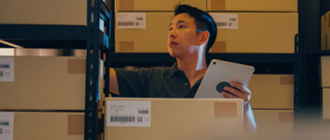
How To Make Freight Shipments Work For Your Small Business
Your next bulk shipment might qualify for freight. Here are our top five tips for freight shipping as a small business.
Read More